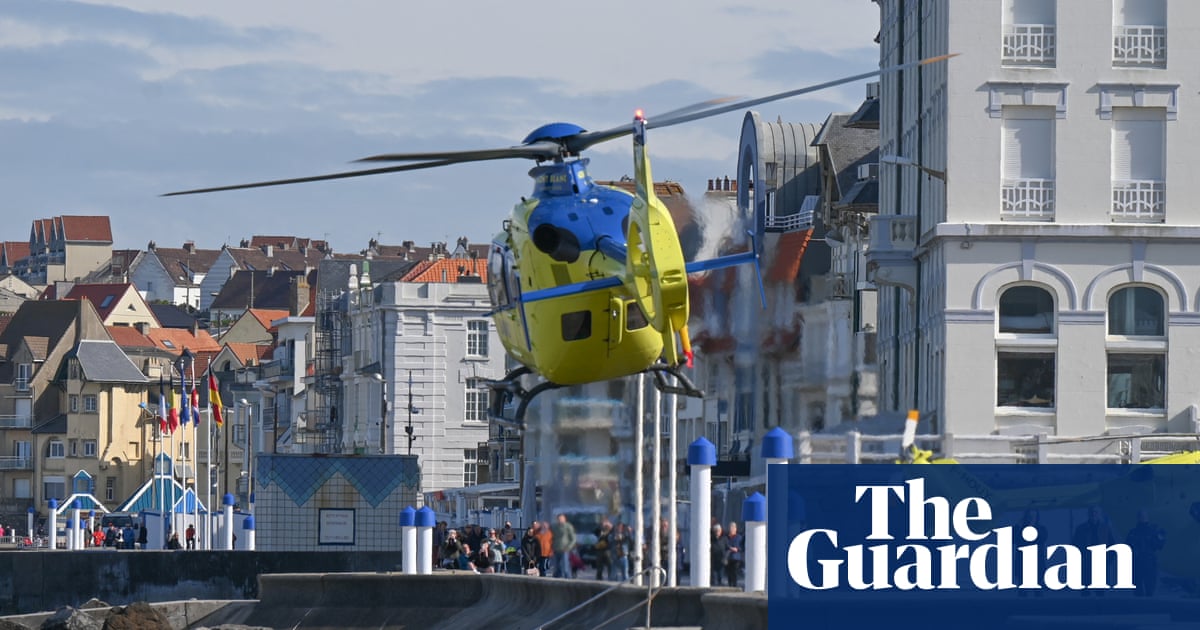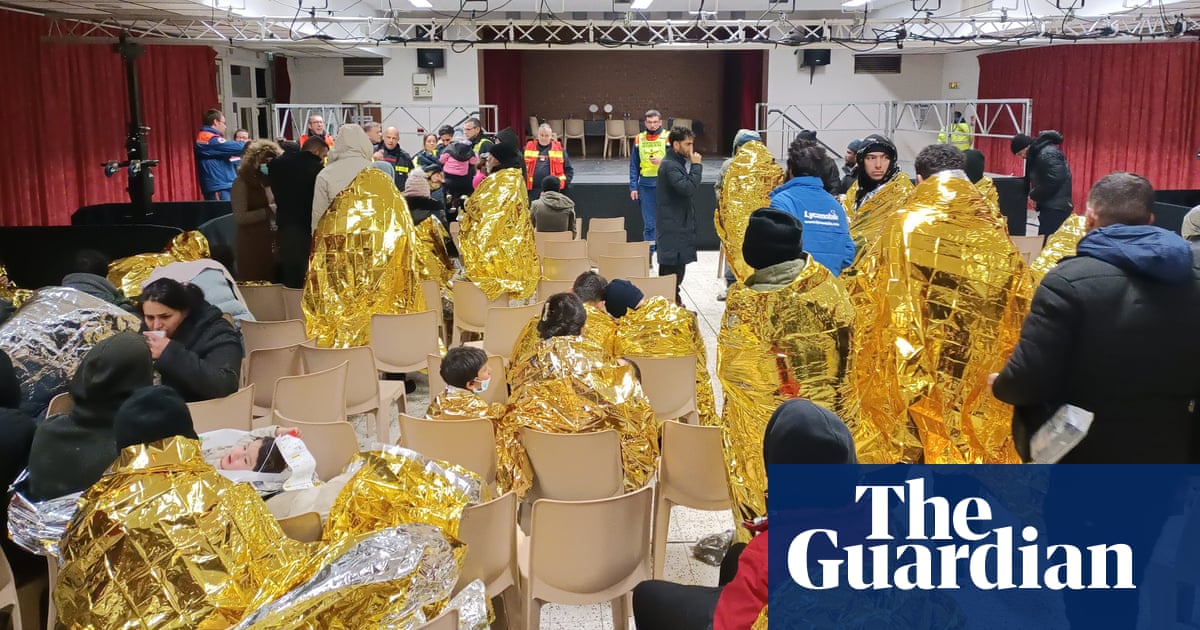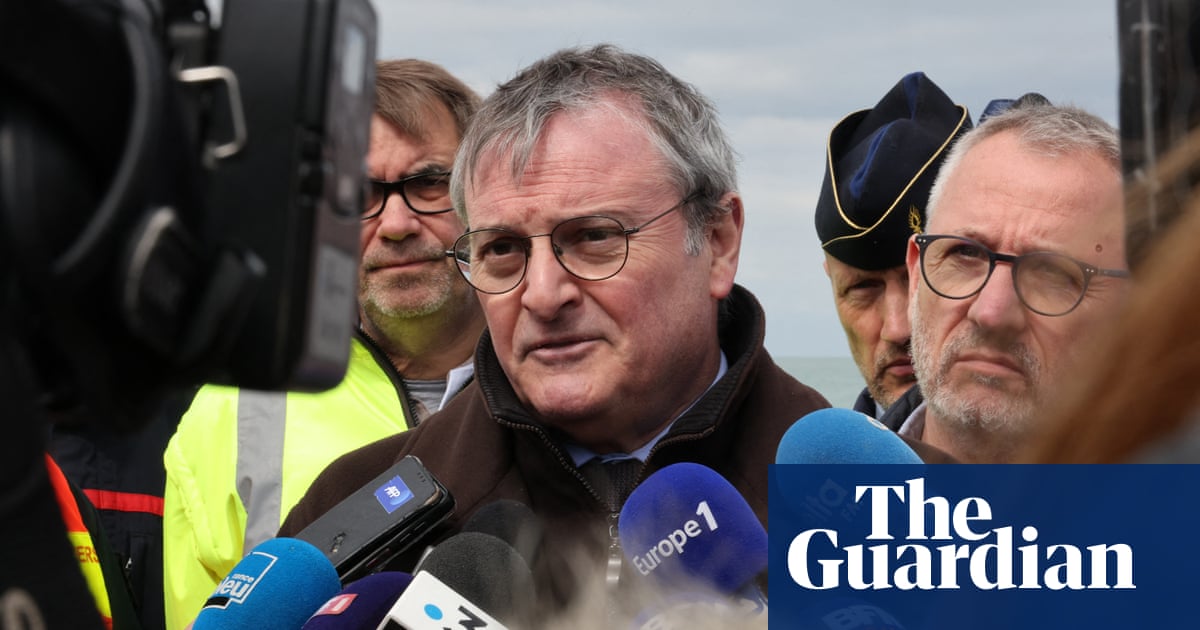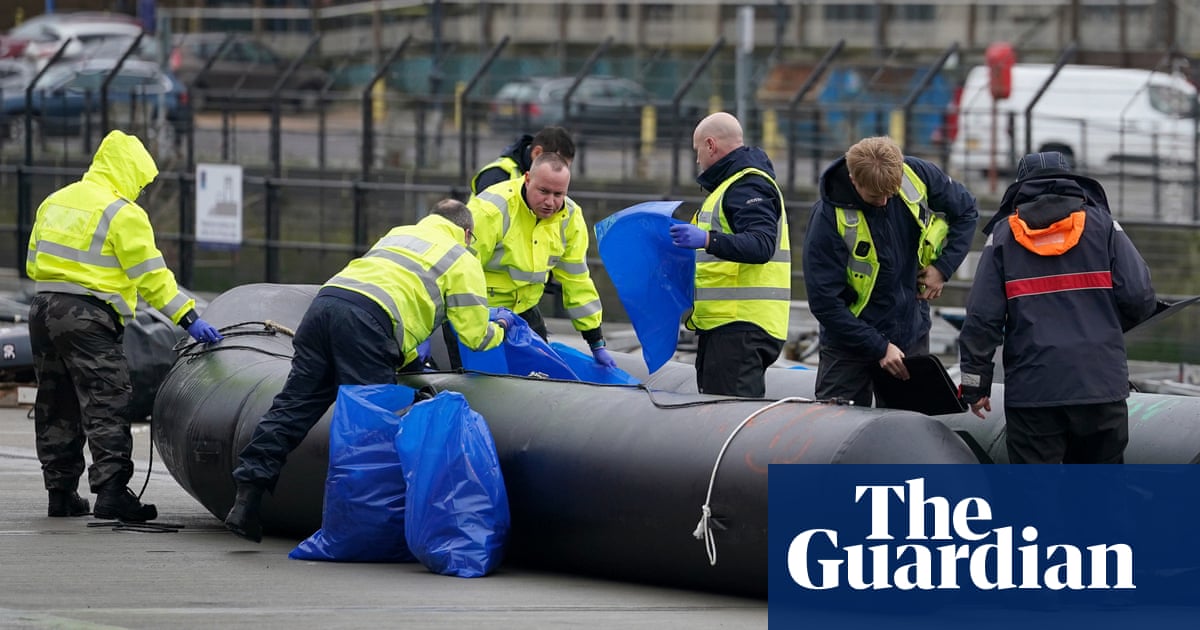
Five people, including a child, have died in an attempt to cross the Channel in a small boat near the town of Wimereux, south of Calais, French authorities say.
More than 110 people were said to have been on board the vessel when it left at 5am near the Plage des Allemands.
The Calais prefect, Jacques Billant, told the Guardian that despite the deaths, 57 people had continued their journey to Britain once the boat’s motor had been restarted.
A provisional assessment reported five deaths, of three men, a woman, and a child reportedly aged between four and seven, and one person slightly injured.
Billant said a rescue operation had been dispatched quickly to the boat in difficulty, and rescuers saw six people “in great difficulty” or inanimate on the boat. They were immediately rescued and taken to shore for treatment by emergency services but “despite attempts to reanimate them, five of them died”, he said.
A further 47 people were rescued from the vessel and were helped by police, emergency services and doctors in Boulogne-sur-Mer. Four were admitted to hospital for treatment.
Billant said that “despite this complex and delicate situation”, 57 people on the dinghy did not want to leave the boat. They managed to get the motor running and continued to Britain, under the surveillance of French authorities.
The French association Osmose 62, which helps asylum seekers and refugees in northern France, was present in Wimereux. Dany Patoux, a volunteer, told France 3 regional television that he had been there when some of the people on the failed crossing made it back to shore.
He said he had seen the father of the child who died. “We knew the little girl well. We have photos with her, where she has a big smile in the hope of a better life. But now it’s all ruined. Her father fell into our arms just now. He is in tears, he is in a terrible state. He saw his daughter die before his eyes.”
The deaths come hours after Rishi Sunak’s government passed legislation to allow it to deport asylum seekers who arrive in the UK on small boats to Rwanda. Sunak said the “tragic” reports of deaths in the Channel showed why the Rwanda plan was needed.
“It’s just a reminder of why my plan is so important because there’s a certain element of compassion about everything that we’re doing,” he told reporters. “We want to prevent people making these very dangerous crossings. If you look at what’s happening, criminal gangs are exploiting vulnerable people.
“They are packing more and more people into these unseaworthy dinghies; you’ve seen an enormous increase in the numbers over the past few years. This is what tragically happens when they push people out to sea and that’s why, for matters of compassion more than anything else, we must actually break this business model.”
More than 6,000 people have made the journey so far this year – an increase of about a quarter on the same period last year.
Matthew Rycroft, the most senior civil servant in the Home Office, who has overseen the Rwanda scheme for two years, previously told MPs he did not have evidence to show it would have a deterrent effect that would make it value for money.
The deal will cost £1.8m for each of the first 300 deportees, the National Audit Office has confirmed.
The Channel is one of the world’s busiest shipping lanes and currents are strong, making the crossing on small boats dangerous. People smugglers typically overload rickety dinghies, often leaving them barely afloat as they try to reach British shores.
The Refugee Council in the UK described the deaths as “devastating” and “all the more tragic” coming just hours after the Rwanda bill was passed.
Enver Solomon, the council’s chief executive, said: “It is shocking to learn of the terrible loss of yet more lives in the Channel this morning. Our thoughts go out to the families and loved ones of those affected. This is another devastating human tragedy that could and should have been avoided, and for it to happen just hours after the government’s Rwanda bill became law makes it all the more tragic.
“The only sustainable way to reduce dangerous journeys … is for the government to reduce the need for desperate people to take desperate actions. Instead of hostile, headline-grabbing legislation, we need to see safe routes for those fleeing conflict and persecution, including more options for family reunion, refugee visas, and cooperation with our European neighbours.”












